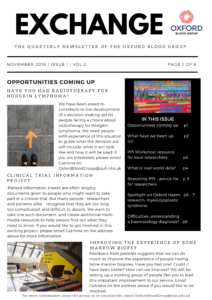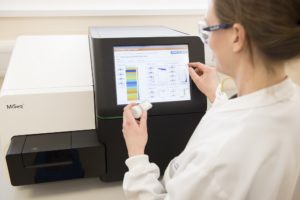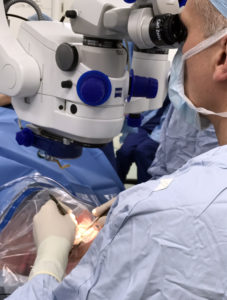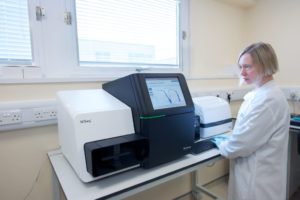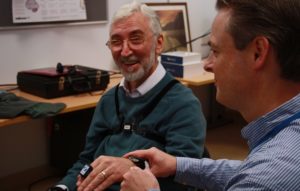Time spent sitting, sleeping and moving is determined in part by our genes, University of Oxford researchers have shown. In one of the most detailed projects of its kind, the scientists studied the activity of 91,105 UK Biobank participants who had previously worn an activity monitor on ... READ MORE
Oxford Blood Group: Exchange Newsletter Issue 1 vol 2 / Nov 2018
... READ MORE
One dose of aspirin doesn’t fit all
About one billion people worldwide take regular aspirin, usually to prevent heart attacks or strokes. Writing in The Lancet, researchers have shown that ‘one-dose-fits-all’ use of aspirin to prevent heart attacks, stroke or cancer, is ineffective or harmful in the majority of people, and that a ... READ MORE
#OxfordImpact2018
Post by Prof Trish Greenhalgh, NIHR Oxford BRC Theme Lead for Partnerships for Health, Wealth and Innovation The most memorable sentence from this one-day workshop held at Jesus College, Oxford, on 21 June 2018 was from keynote speaker Mark Taylor. Reflecting on his experience as a patient with ... READ MORE
Public invited to help tackle antibiotic resistance
An online project has been launched to study antibiotic resistance in Tuberculosis (TB) with the help of the public. The project website, bashthebug.net, shows volunteers images of a series of small, circular wells, each containing M.tuberculosis (the bug that causes TB) and a different dose of ... READ MORE
Five more years of transforming care through research
An exciting new chapter in NHS medical research in Oxford begins today (April 1) with the £113.7m renewal of the NIHR Oxford Biomedical Research Centre (BRC). The BRC is a partnership between Oxford University Hospitals NHS Foundation Trust and the University of Oxford to fund medical research that ... READ MORE
England world leaders in the use of Whole Genome Sequencing to diagnose TB
In a world-first, Whole Genome Sequencing (WGS) is now being used to identify different strains of tuberculosis, announced Public Health England today. This is the first time that WGS has been used as a diagnostic solution for managing a disease on this scale anywhere in the world. This builds on ... READ MORE
New trial for blindness rewrites the genetic code
Researchers have started a new gene therapy clinical trial to treat X-linked retinitis pigmentosa (XLRP), the most common cause of blindness in young people. Retinitis pigmentosa is currently untreatable and leads to a slow and irreversible loss of vision. On 16 March 2017, a 29-year-old British ... READ MORE
Genetic sequencing offers same-day TB testing
Researchers have for the first time shown that standard tuberculosis (TB) diagnostic tests can be replaced by a sub-24 hour genetic test applied to the TB bacteria in a patient’s sputum. It currently takes up to two months to obtain the full diagnostic information for a patient with TB, as the ... READ MORE
Hospital tablet computers cut nurse time by up to 30 per cent, study finds
A project to replace bedside paper charts with tablet computers in Oxfordshire’s NHS hospitals reduced the typical time taken to input patients’ vital signs by up to 30%, a study has found. The System for Electronic Notification and Documentation (SEND) was developed by the University of Oxford ... READ MORE
Public Health Minister Visits Oxford Cancer Hospital ahead of World Cancer Day
Ahead of World Cancer Day on February, Public Health Minister Nicola Blackwood highlighted the importance of UK scientific research to beating cancer during a visit to the Churchill Hospital. The Public Health and Innovation Minister saw state-of-the-art clinical trials and facilities for new ... READ MORE
Oxfordshire research funding programme praised for impact on NHS
A 10-year programme of research funding at Oxfordshire’s hospitals has had a positive impact on patient care, a new paper has reported. Interviews with clinical leaders on the work of the NIHR Oxford Biomedical Research Centre (BRC) found ‘numerous’ examples of positive impact on patient ... READ MORE
Industry partnership to deploy digital technology in NHS
Drayson Technologies, Oxford University and Oxford University Hospitals (OUH) NHS Foundation Trust have signed three agreements to collaborate on the development, testing and future commercialisation of three clinically validated digital health products arising from BRC-funded research undertaken by ... READ MORE
Antibiotics, not dirty hospitals, the main cause of C. difficile epidemic
Restricting the use of a common antibiotic was more important than a high profile “deep clean” of hospitals in massively reducing UK antibiotic resistant Clostridium difficile (C. diff) cases, a major new study has found. The study concluded that overuse of antibiotics like ciprofloxacin led to ... READ MORE
Second key step for eye robot trial
A robot has been used to inject a drug into the back of the eye in a world first for the next phase of a landmark clinical trial at Oxford’s John Radcliffe Hospital. Prof Robert MacLaren used the remotely controlled robot to administer a tiny volume of blood dissolving agent tPA under the retina ... READ MORE
Funding boost for genetics centre
A major University of Oxford genetics research centre that supports Oxford BRC research is to share £118m of new funding. Global medical research funding charity Wellcome has announced funding for The Wellcome Centre for Human Genetics. The aim of the centre is to advance understanding of ... READ MORE
Nanopore genetics breakthrough supported by Oxford BRC
Oxford University’s Wellcome Trust Centre for Human Genetics (WTCHG) and the leading genome analytics company Genomics plc has announced the first sequencing and analysis of multiple human genomes using nanopore technology. The announcement, made on Thursday, December 1, at the Oxford Nanopore ... READ MORE
Tower turns blue for diabetes awareness
Churchill Hospital staff lit Oxford’s Magdalen Tower blue and hosted a research open day to spread awareness about diabetes. Staff from The Oxford Centre for Diabetes, Endocrinology and Metabolism (OCDEM) arranged for the iconic landmark to be lit to mark World Diabetes Day on November 14, a ... READ MORE
Magdalen Tower set to turn blue for World Diabetes Day
Clinicians and researchers are preparing to light Oxford’s Magdalen Tower blue to mark World Diabetes Day – and have invited patients and visitors to then learn more at an open day about the condition at the Churchill Hospital. The tower at Magdalen College in High Street will follow in the ... READ MORE
Record high for Oxford University Hospitals research studies
The number of medical research studies at Oxford University Hospitals NHS Foundation Trust has hit a record high, new figures show. The number of studies active in May 2016 was 1,786, up seven per cent from 1,664 in May 2015. The figures – up 222 per cent from 554 in May 2008 – ... READ MORE
- « Previous Page
- 1
- 2
- 3
- 4
- 5
- …
- 17
- Next Page »

